What Are the Benefits of 3D Rendering in the Fashion Industry?
Discover how 3D rendering revolutionizes fashion design with realistic prototypes, reduced waste, and innovative tools like Browzwear's VStitcher.
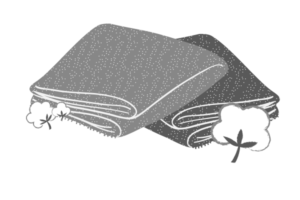
It’s always exciting to see our customers adopt more sustainable practices across the value chain. With the Open Platform, customers can take advantage of an entirely new way of working, enabling them to carry out their day-to-day processes more efficiently and of course, sustainably. From ecological fabric libraries to virtual showcasing capabilities, making the shift from physical to digital is crucial for apparel companies looking to lower their environmental impact. Here are a few of the many ways that the combination of 3D with various digital solutions can transform traditionally wasteful practices into more sustainable processes.
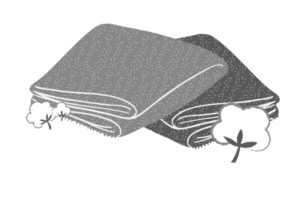 One of the most impactful ways to cut back on carbon emissions is by switching to more ecological fabrics throughout the design process, that’s why we’re rapidly expanding our collection of eco-conscious assets available to all VStitcher users. From the latest Cotton Incorporated all-natural, biodegradable digital cotton library, to a wide range of sustainable zippers from leading manufacturers including YKK , IDEAL Fastener , and Edicate , users will be able to leverage a more environmentally friendly workflow and create 100% environmentally sustainable designs.
One of the most impactful ways to cut back on carbon emissions is by switching to more ecological fabrics throughout the design process, that’s why we’re rapidly expanding our collection of eco-conscious assets available to all VStitcher users. From the latest Cotton Incorporated all-natural, biodegradable digital cotton library, to a wide range of sustainable zippers from leading manufacturers including YKK , IDEAL Fastener , and Edicate , users will be able to leverage a more environmentally friendly workflow and create 100% environmentally sustainable designs.
With top-notch visualization tools like Metail’s EcoShot , designers can confidently communicate their 3D designs on photographs of real-life models. This means they can envision and showcase their garments in a way that replicates real-life photography, without the need for physical samples with their associated cost and time implications. Therefore, designers, product managers, merchandisers, and buyers can effectively collaborate over photo-realistic images without needing to produce and ship physical samples back and forth overseas throughout the approval cycle.
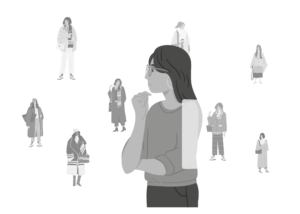
To take this a step further, VR platforms such as ByondXR give apparel companies the ability to showcase their VStitcher garments in a life-like setting for any sales or design presentation, virtually mirroring the physical purchasing experience and allowing customers to view the products from anywhere in the world. By executing an all-digital selling process, much of the physical resources needed to orchestrate a collection presentation are no longer required, enabling apparel companies to act more sustainably and remain aligned throughout the entire process.
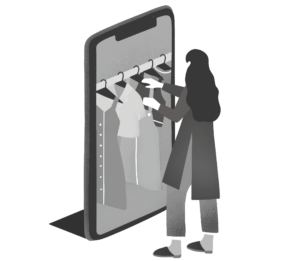 With innovative 3D viewers and configurators like Sketchfab , apparel companies can incorporate this useful tool across each stage of the apparel value chain, from design and product development to sales and marketing. These 360-degree viewers can be accessed from anywhere, and embedded on any eCommerce website. Other 3D CMS platforms like VNTANA allow users to showcase their 3D in a 360-degree image while reducing the weight of the file by 95% without sacrificing the visual quality. Thus, with these solutions, apparel companies can effectively sell designs to both buyers and consumers interactively, for a more engaging experience.
With innovative 3D viewers and configurators like Sketchfab , apparel companies can incorporate this useful tool across each stage of the apparel value chain, from design and product development to sales and marketing. These 360-degree viewers can be accessed from anywhere, and embedded on any eCommerce website. Other 3D CMS platforms like VNTANA allow users to showcase their 3D in a 360-degree image while reducing the weight of the file by 95% without sacrificing the visual quality. Thus, with these solutions, apparel companies can effectively sell designs to both buyers and consumers interactively, for a more engaging experience.
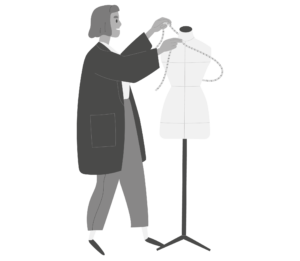 Whether you’re experimenting with different colorways, textures, and prints for your garment this part of the process often requires a high level of resource consumption until any decisions can be made. With the VStitcher Substance by Adobe integration, designers can take advantage of true-to-life print visualization and enjoy an optimized workflow, narrowing down their best print executions which accurately represent the physical end result. When it comes to color, users can experiment with over 4000 on-trend colors that comply with leading eco-standards, provided by Archroma that can be extracted to the final tech pack. With the colors available through the Color Atlas, apparel companies can make more informed decisions over color before purchasing, and therefore reduce the number of iterations. If you’re looking to create advanced textures, textile design solutions like PointCarre allow users to develop prints, knits, and woven fabrics and visualize them in Browzwear’s true-to-life 3D to further streamline the design cycle.
Whether you’re experimenting with different colorways, textures, and prints for your garment this part of the process often requires a high level of resource consumption until any decisions can be made. With the VStitcher Substance by Adobe integration, designers can take advantage of true-to-life print visualization and enjoy an optimized workflow, narrowing down their best print executions which accurately represent the physical end result. When it comes to color, users can experiment with over 4000 on-trend colors that comply with leading eco-standards, provided by Archroma that can be extracted to the final tech pack. With the colors available through the Color Atlas, apparel companies can make more informed decisions over color before purchasing, and therefore reduce the number of iterations. If you’re looking to create advanced textures, textile design solutions like PointCarre allow users to develop prints, knits, and woven fabrics and visualize them in Browzwear’s true-to-life 3D to further streamline the design cycle.
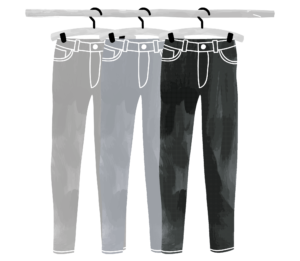
Sustainable denim companies like Jeanologia, are transforming traditional damaging denim practices into eco-conscious denim production. Jeanologia stands at the forefront of innovation within the textile industry with its state-of-the-art laser technologies, it reduces water and energy consumption while eliminating damaging emissions and waste throughout the garment finishing process. Browzwear users can visualize their Jeanologia finishes in true-to-life 3D, without any detail going unnoticed. Therefore, when moving to production, the instructions for the finishes are included with those for the garments, ensuring the finished physical product is an exact representation of its digital twin.
 Ensuring that your organization remains on top of its environmental impact is key, that’s why more and more apparel companies are adopting PLM systems to track and reduce their carbon footprint. PLM systems like Centric Software , BeProudct , and PTC enable apparel companies to seamlessly integrate 3D with an endless suite of digital tools for each part of the product lifecycle and take advantage of a more streamlined 3D design and product development process. This enables companies to produce fewer physical samples, speed up time to market, and enjoy a flexible workflow.
Ensuring that your organization remains on top of its environmental impact is key, that’s why more and more apparel companies are adopting PLM systems to track and reduce their carbon footprint. PLM systems like Centric Software , BeProudct , and PTC enable apparel companies to seamlessly integrate 3D with an endless suite of digital tools for each part of the product lifecycle and take advantage of a more streamlined 3D design and product development process. This enables companies to produce fewer physical samples, speed up time to market, and enjoy a flexible workflow.
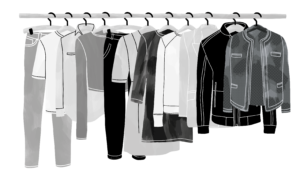 Scanning materials with Vizoo that are perfectly captured for use in digital creation. Therefore Browzwear users can seamlessly import detailed visual material data captured with xTex directly into both VStitcher and Lotta to begin their creative process. These materials are stored in an open texture format so can be used across multiple 3D applications to create high-quality, realistic textures. Managing materials with Swatchbook Material Lifecycle Management (MLM) revolutionizes the way that materials are shared and visualized, allowing users to interact with their data more efficiently.
Scanning materials with Vizoo that are perfectly captured for use in digital creation. Therefore Browzwear users can seamlessly import detailed visual material data captured with xTex directly into both VStitcher and Lotta to begin their creative process. These materials are stored in an open texture format so can be used across multiple 3D applications to create high-quality, realistic textures. Managing materials with Swatchbook Material Lifecycle Management (MLM) revolutionizes the way that materials are shared and visualized, allowing users to interact with their data more efficiently.
Discover how 3D rendering revolutionizes fashion design with realistic prototypes, reduced waste, and innovative tools like Browzwear's VStitcher.
Learn how to integrate fashion PLM with 3D design software to streamline workflows, boost collaboration, and speed up product development.
Discover four proven strategies to seamlessly integrate new 3D fashion design technology into your workflow, boosting efficiency and innovation.